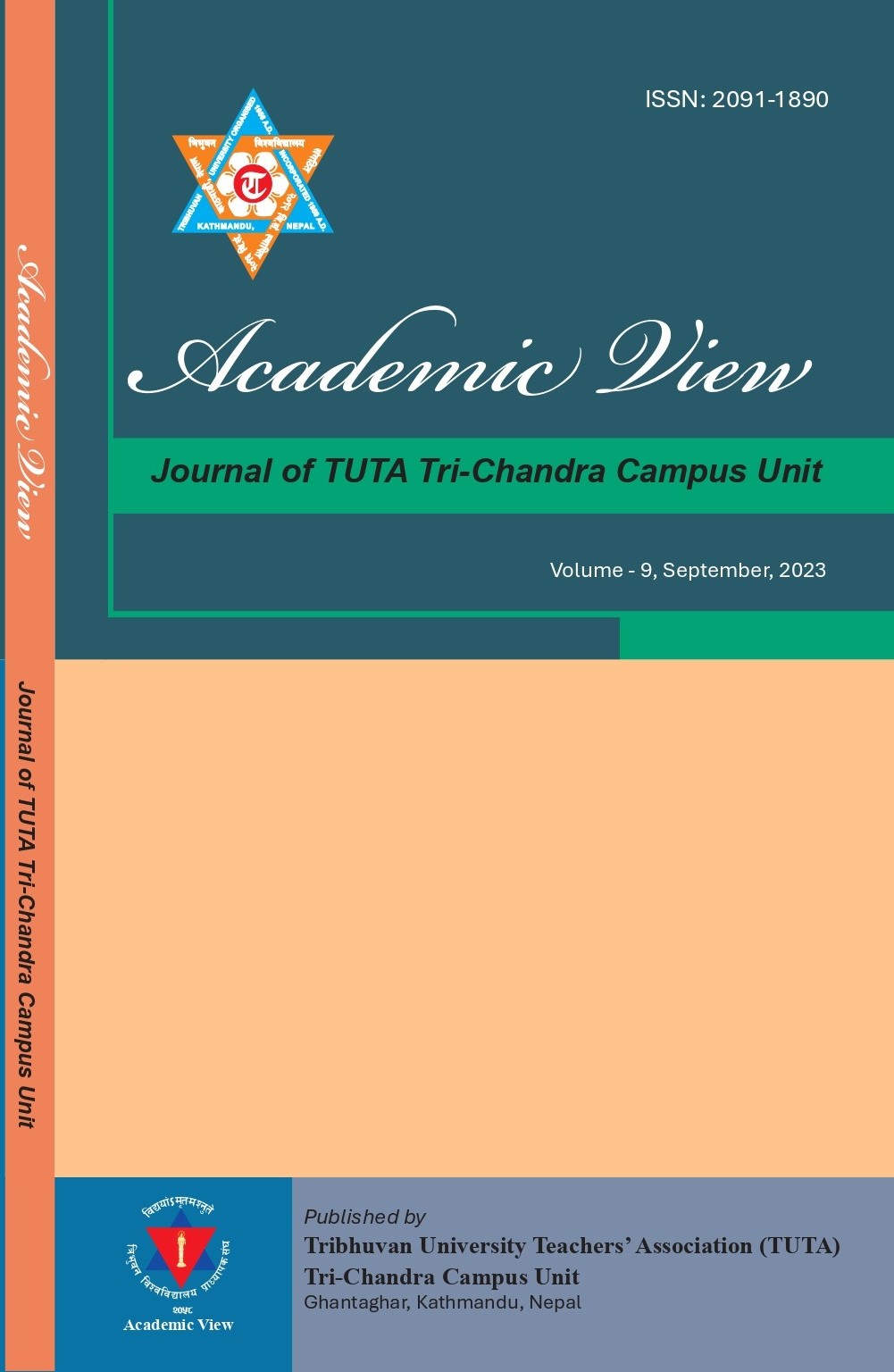Fundamental Reasons for Gender Discrimination in Nepalese Societies
DOI:
https://doi.org/10.3126/acadview.v9i1.71217Keywords:
Economic Inequality, Gender Discrimination, Patriarchal Domination, Socialization ProcessAbstract
Gender is constructed in the circumstances of particular socio-economic arrangements and gets transmitted through a process of collective and social learning. Women and men are biologically as well as socially and culturally different which has led to involvement in different gender dealings. The well-managed system of gender inequality, differentiation, stratification, and discrimination, in which there is an uneven gender construction and distribution of rewards and punishment logic and treatment between men and women existed throughout all Nepali cultures including modern or so-called modern ones. The socialization of Nepali womanhood and manhood is associated with the connections and interconnections of caste/ethnic groups, religion, education, occupation, tradition, culture, and deep-rooted and embedded patriarchal ideologies and practices. The ideological representations of gender and gender socialization are central to the exercise of patriarchal values, cultural beliefs, and economic domination. While sociologists and feminists study the collective social inequalities and variations, they attempt to understand how different forms of unfairness interconnect and affect each other. In the same way, it is very difficult to realize gender suppression and subordination without also looking at the practice of men and women in diverse social milieus such as caste/ethnic groups, occupation, education, religion, and other social categories. In this context, this study provides an analysis of the main causes of the construction of gender discrimination and discriminatory gender relationships in Nepali societies within the background of different socio-cultural dimensions and standpoints.




